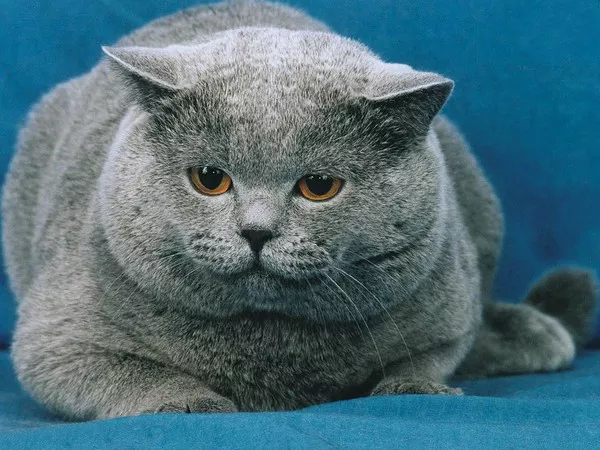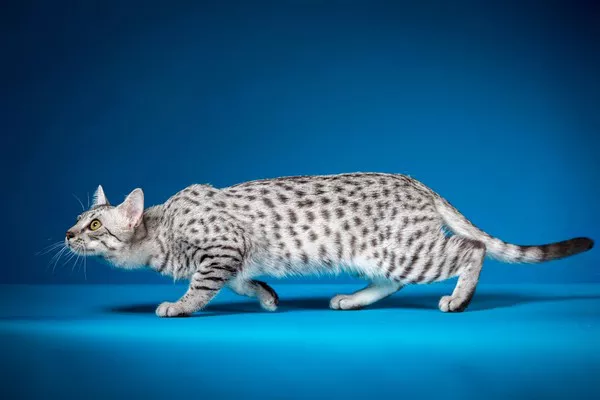Cats, revered for their enigmatic nature and unique dietary needs, often spark curiosity when it comes to exploring diverse food options. The question of whether cats can safely consume egg yolks unveils a spectrum of nutritional intricacies, sparking a journey into the realms of feline culinary considerations. In this comprehensive exploration, we delve into the nutritional composition of egg yolks, assess their potential benefits for cats, address common concerns, and guide pet owners through the delicate art of incorporating this delicacy into their feline companion’s diet.
The Egg Yolk Spectrum: A Nutritional Goldmine
Egg yolks, known for their richness in proteins, fats, vitamins, and minerals, form a nutritional goldmine that tantalizes not only human taste buds but also beckons to feline palates. Understanding the nuances of this nutrient-packed component sets the stage for unraveling its potential role in meeting the dietary needs of our beloved feline friends.
1. The Feline Gourmet: Tailoring Diets to Cat Physiology
As obligate carnivores, cats possess distinct dietary requirements that necessitate a careful selection of foods. Exploring how egg yolks align with the natural physiology of cats sheds light on the potential benefits and considerations that come with introducing this culinary element into their diet.
2. Navigating Nutritional Landscapes: A Balanced Approach
Balancing a cat‘s diet involves not only meeting their basic nutritional requirements but also understanding the intricacies of varied nutrients. Egg yolks, with their unique blend of proteins, fats, vitamins, and minerals, present an opportunity for dietary enrichment. However, achieving this balance requires a thoughtful approach to ensure optimal feline health and well-being.
Proteins, Amino Acids, and the Feline Essence
1. Protein Prowess: Building Blocks of Feline Vitality
Proteins, the fundamental building blocks of life, play a pivotal role in the overall health and vitality of cats. Egg yolks, laden with high-quality proteins, offer a source of amino acids crucial for maintaining muscle mass, supporting immune function, and promoting the overall well-being of feline companions.
2. Egg Yolks and Amino Acid Harmony: Meeting Feline Needs
Diving deeper into the amino acid profile of egg yolks unveils their potential to complement the essential amino acids required by cats. Assessing how these amino acids contribute to feline health provides insights into the role egg yolks can play in fortifying the protein component of a cat’s diet.
3. Moderation in Protein Pleasures: Avoiding Excesses
While proteins are indispensable for cats, moderation remains a key consideration. Navigating the delicate balance between meeting a cat’s protein needs and avoiding potential excesses becomes crucial for preventing health complications associated with overconsumption.
The Fats Conundrum: Nourishing Coats and Cognitive Health
1. The Role of Fats in Feline Wellness
Fats, often scrutinized in human nutrition, take on a different significance in the feline diet. Egg yolks, with their healthy fat content, contribute to maintaining skin and coat health, supporting cognitive function, and regulating inflammation in cats.
2. Omega-3 Fatty Acids: A Cat’s Cognitive Ally
Delving into the specific types of fats present in egg yolks, particularly omega-3 fatty acids, reveals their potential as cognitive allies for cats. Unraveling the benefits of these essential fatty acids provides a deeper understanding of how egg yolks can contribute to feline neurological health.
3. Navigating Fat Intake: Striking a Delicate Balance
As with proteins, managing fat intake in a cat’s diet requires precision. Evaluating the potential benefits of fats from egg yolks and understanding the thresholds for moderation becomes imperative for safeguarding a cat’s overall well-being.
Vitamins in Egg Yolks: A Cat’s Vision and Beyond
1. Vitamin A: Nurturing Feline Vision
Egg yolks emerge as a source of vitamin A, essential for maintaining feline vision. Exploring the role of this vitamin in the overall ocular health of cats illuminates the potential contributions of egg yolks to their visual well-being.
2. Vitamin D: Bone Health and Beyond
Vitamin D, critical for bone health, is another facet of the egg yolk’s nutritional portfolio. Assessing how egg yolks contribute to a cat’s vitamin D requirements unveils their potential role in supporting skeletal integrity and overall health.
3. B Vitamins: Energizing the Feline System
The gamut of B vitamins present in egg yolks plays a vital role in supporting energy metabolism and overall physiological functions in cats. Unraveling the specific contributions of these B vitamins provides a comprehensive view of how egg yolks can serve as nutritional allies in energizing the feline system.
Mineral Matters: The Egg Yolk Contribution
1. Phosphorus: A Cat’s Skeletal Ally
Phosphorus, a vital mineral for skeletal health, is present in egg yolks. Evaluating how egg yolks contribute to a cat’s phosphorus intake sheds light on their potential role in supporting skeletal development and maintenance.
2. Selenium and Zinc: Immune Support and Beyond
Selenium and zinc, minerals with immune-supporting properties, add layers of complexity to the mineral composition of egg yolks. Understanding the nuances of how these minerals contribute to feline health expands our appreciation for the multifaceted role of egg yolks in bolstering the immune system.
3. Iron: Ensuring Mineral Balance
The presence of iron in egg yolks raises considerations about its potential contributions to a cat’s mineral balance. Assessing the role of iron in feline health provides insights into how egg yolks can play a part in meeting a cat’s nutritional needs.
The Egg Yolk Debate: Debunking Common Concerns
1. The Salmonella Specter: Raw vs. Cooked Egg Yolks
Salmonella contamination, often associated with raw eggs, surfaces as a prominent concern in the egg yolk debate. Differentiating between the risks and benefits of raw versus cooked egg yolks offers pet owners a nuanced perspective on how to navigate this potential hazard.
2. Allergy Apprehensions: Navigating Feline Sensitivities
Allergies, though less prevalent in cats than in some other pets, remain a consideration when introducing new foods. We explore how to identify potential sensitivities to egg yolks and implement gradual introductions to minimize the risk of adverse reactions in feline companions.
3. Portion Control Prudence: Moderating Egg Yolk Intake
Portion control emerges as a critical consideration in the egg yolk debate. Unraveling the importance of moderation and assessing appropriate serving sizes ensures that the potential benefits of egg yolks are harnessed without exposing cats to unnecessary health risks.
Crafting the Feline Culinary Experience: Serving Egg Yolks with Care
1. Cooking Techniques: From Raw to Cooked Perfection
The art of crafting a feline culinary delight involves mastering various cooking techniques for egg yolks. We explore the options available, from raw to cooked perfection, considering the impact on nutritional integrity and feline taste preferences.
2. Culinary Creativity: Egg Yolks in Cat-Friendly Recipes
Incorporating egg yolks into cat-friendly recipes adds a layer of culinary creativity to the feline dining experience. Exploring simple and nutritious recipes ensures that the inclusion of egg yolks aligns with both the nutritional needs and gustatory preferences of cats.
3. Portioning Wisdom: Ensuring Feline Delight Without Excess
Portioning, a critical aspect of serving egg yolks to cats, requires a delicate balance. Navigating the fine line between providing a delightful culinary experience and avoiding overindulgence ensures that cats savor the benefits of egg yolks without compromising their overall nutritional balance.
Navigating the Cat Culinary Landscape: Balancing Egg Yolks in the Feline Feast
1. Primary Cat Food vs. Culinary Enhancements: Striking a Harmonious Balance
In the broader context of a cat’s diet, where high-quality commercial cat food often takes center stage, the role of egg yolks as a supplementary treat or dietary enhancement requires thoughtful consideration. We explore how to strike a harmonious balance between the primary cat food source and occasional indulgences like egg yolks, ensuring that dietary diversity contributes positively to a cat’s overall nutrition.
2. Veterinary Guidance: The Keystone of Feline Dietary Decision-Making
The consultation with veterinary professionals emerges as a cornerstone in guiding pet owners through dietary decisions. We delve into the crucial role of veterinarians in providing personalized advice, ensuring that the inclusion of egg yolks aligns with a cat’s individual health needs, age, and any pre-existing medical conditions.
3. Feline Feedback: Observing and Adapting to Individual Preferences
Understanding and adapting to a cat’s individual preferences form an integral part of navigating the culinary landscape. Observing feline feedback, both in terms of taste preferences and potential digestive responses, allows pet owners to tailor dietary choices to their cat’s unique needs and whims.
Conclusion – Cracking the Egg Yolk Code for Felines
In conclusion, the exploration of whether cats can safely consume egg yolks unfolds as a multifaceted journey into the realms of nutrition, dietary considerations, and culinary craftsmanship. As we traverse the nutritional landscape of egg yolks, address common concerns, and guide pet owners through the process of incorporating this delicacy into their feline companion’s diet, a nuanced understanding emerges. Egg yolks, when introduced with care, moderation, and veterinary guidance, can contribute valuable nutrients to a cat’s diet, enhancing both their physical well-being and the joy derived from culinary experiences. As pet owners embark on the nuanced journey of nourishing their feline friends, the egg yolk becomes not just a nutritional element but a thoughtful addition to the tapestry of feline culinary exploration.



























